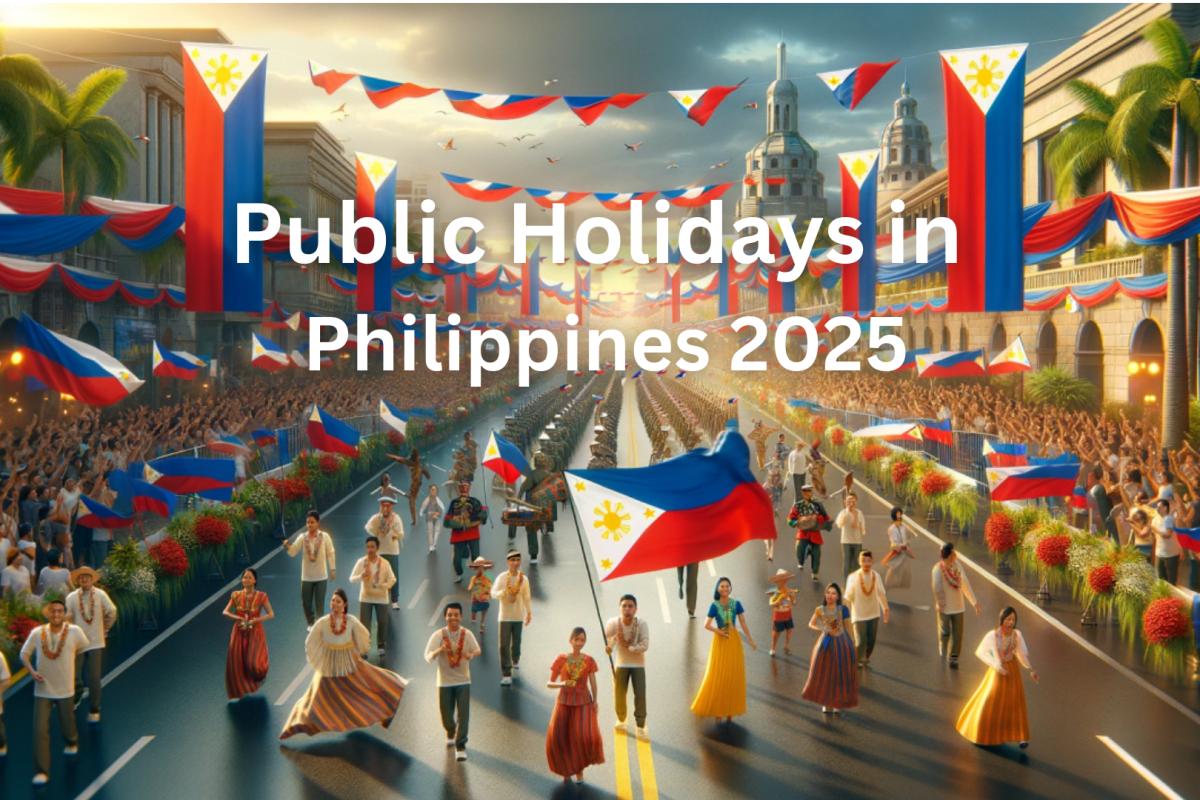The Philippines’ 2025 public holiday calendar offers a rich tapestry of national celebrations that reflect the country’s diverse culture, religious heritage, and historical milestones. Below is a comprehensive overview of major public holidays to help businesses plan their operations and manage employee leave effectively.
Key Public Holidays in the Philippines for 2025
The following list outlines major nationwide holidays observed in the Philippines for 2025. These holidays commemorate significant cultural, religious, and historical events.
Date | Holiday | Description |
|---|---|---|
January 1 | New Year’s Day | Celebrates the beginning of the new year with family gatherings, parties, and fireworks. |
April 9 | Araw ng Kagitingan | Day of Valor honoring Filipino soldiers, celebrated with parades and ceremonies. |
April 17 | Maundy Thursday | Observed by Catholics, commemorating the Last Supper of Jesus Christ, often marked by church services. |
April 18 | Good Friday | Reflects on the crucifixion of Jesus, observed with solemn church rituals and processions. |
May 1 | Labor Day | A tribute to workers, often featuring parades, rallies, and celebrations of workers’ achievements. |
June 12 | Independence Day | Commemorates the Philippines’ independence from Spain in 1898, celebrated with parades and events. |
August 21 | Ninoy Aquino Day | Honors the legacy of Senator Benigno “Ninoy” Aquino Jr. and his contributions to democracy. |
August 25 | National Heroes Day | Pays tribute to Filipino heroes who fought for freedom and independence. |
November 1 | All Saints’ Day | A day to remember departed loved ones, observed with cemetery visits and family gatherings. |
November 2 | All Souls’ Day | Commemorates the faithful departed, with prayers and cemetery visits to honor the deceased. |
December 8 | Feast of the Immaculate Conception | A religious holiday honoring the Virgin Mary, with masses and celebrations by Filipino Catholics. |
December 25 | Christmas Day | A major holiday marking the birth of Jesus Christ, celebrated with family gatherings and feasts. |
December 30 | Rizal Day | Honors the national hero José Rizal on the anniversary of his death, observed with ceremonies. |
December 31 | New Year’s Eve | Marks the end of the year with parties, fireworks, and traditional festivities. |
Regional Holidays
The Philippines also observes regional holidays that celebrate local history, culture, and patron saints. Businesses operating in these areas should take note of these holidays for effective leave management.
Date | Holiday | Region | Description |
|---|---|---|---|
January 23 | Cebu City Charter Day | Cebu City | Celebrates Cebu’s founding with cultural events and parades. |
September 9 | Osmeña Day | Cebu and Quezon | Honors former President Sergio Osmeña with local festivities and parades. |
November 23 | Muslim Mindanao | ARMM* | Islamic communities celebrate Eid al-Adha and Eid al-Fitr based on the lunar calendar. |
*Autonomous Region in Muslim Mindanao
Additional Holidays and Observances
Certain observances in the Philippines, while not official public holidays, are widely celebrated and may influence business operations.
Date | Holiday/Observance | Description |
|---|---|---|
February 14 | Valentine’s Day | Celebrated nationwide with gift exchanges, romantic dinners, and gatherings. |
October 31 | Halloween | Popular among children and young adults, often featuring costume parties. |
December | Holiday Season | A peak season for travel, shopping, and family gatherings, impacting retail and tourism. |
Employer Considerations for Managing Public Holidays in the Philippines
National vs. Regional Holidays
Understanding both national and regional holidays is essential. Philippine labor laws entitle employees to specific holidays based on their location. Businesses should adapt operations to reflect these variations and comply with legal requirements.
Managing Public Holidays with EOR/PEO Services
For foreign businesses without a local presence, employing EOR/PEO services can simplify holiday management. These organizations assist by:
Ensuring Compliance: EOR/PEO providers navigate Philippine labor laws and holiday requirements for employers.
Payroll Management: They handle payroll adjustments for holiday pay and ensure accurate processing.
Managing Leave Entitlements: EOR/PEO services track both national and regional holidays to efficiently manage leave requests.
Holiday Pay and Compliance
Philippine labor laws mandate that employees receive pay for national public holidays:
Paid Leave: Eligible employees are entitled to paid time off on public holidays.
Holiday Rates: Employees working on a public holiday may receive a higher rate of pay.
Substitute Holidays: When a public holiday falls on a weekend, employers may consider providing a substitute holiday on the next working day.
Productivity and Holiday Planning
To balance operational efficiency and employee satisfaction, employers should:
Flexible Work Arrangements: Consider flexible schedules or remote work to accommodate holiday variations.
Advanced Communication: Provide employees with an annual holiday calendar to support planning.
Project Timeline Adjustment: Schedule projects around holidays to avoid productivity loss.
Continuity Planning: Prepare operational coverage for extended holiday periods.
Final Thoughts
The Philippines’ 2025 public holiday calendar reflects its rich cultural and historical heritage. Employers can benefit from carefully navigating these holidays to ensure smooth operations, meet local expectations, and foster a positive work environment. Effective holiday planning can minimize disruptions and enhance productivity, benefiting both businesses and employees alike.
GlobainePEO – Your Trusted Partner
At GlobainePEO, we help employers navigate the complexities of managing public holidays in Philippines. From ensuring compliance with provincial laws to managing holiday schedules, we provide the support your business needs to thrive. Let us handle your workforce management while you focus on growing your business.

